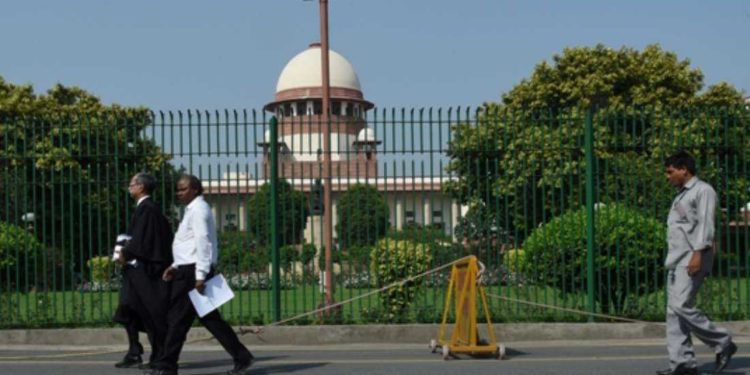The petitioner termed Christians and Muslims rapists while accusing them of indulging in religious conversions
A general view of the Supreme court of India pictured in New Delhi on Sept. 27, 2018. (Photo: AFP)
India’s Supreme Court has asked a petitioner to delete scurrilous allegations he made against Christians and Muslims in his petition that sought a national law to end religious conversions.
The public interest litigation (PIL), filed by Delhi-based lawyer Ashwini Upadhyay, an activist of the pro-Hindu Bharatiya Janata Party (BJP), termed Christians and Muslims rapists and accused them of indulging in illegal religious conversions.
“Please make a formal application and delete those paragraphs,” Chief Justice of India’s Supreme Court D Y Chandrachud told the counsel of the petitioner on Dec. 16.


Upadhyay’s petition complained that religious conversions are rampant in the country and that the federal government, headed by his pro-Hindu party, should frame laws to end them.
Eight of India’s 28 states already have enacted laws that criminalize religious conversion without informing that state, which also includes marrying for the sake of religious conversion.
Christian leaders say these laws have become a tool in the hands of pro-Hindu right-wing groups to persecute Christians and Muslims, who together make up 17.3 percent of India’s 1.3 billion people. The majority of Indians – about 80 percent – are Hindus.
The three-judge bench of the Supreme Court has also agreed to consider the maintainability of Upadhyay’s petition, saying, “It will be considered at an appropriate stage.”
Earlier, Upadhyay’s petition was being heard by a Supreme Court bench headed by Justice M R Shah, which prima facie admitted that forceful conversions were a serious issue in the country.
Christian leaders, however, had criticized Justice Shah for openly supporting the BJP leader’s claims.
The pro-Hindu federal government also supported Upadhyay’s demand for a law to end forceful religious conversions.
In its affidavit, the federal government noted that Article 25 of the Constitution guaranteed the right to profess, practice, and propagate religion to all citizens, but does not guarantee the “right to convert” others.
The bench, headed by Chief Justice Chandrachud, also questioned the conduct of the petitioner after it was brought to its attention that Upadhyay had earlier filed similar petitions with another bench in the Supreme Court and in the high court of Delhi, only to withdraw them later.
Upadhyay withdrew his other petition in the Supreme Court after a bench, led by Justice Rohinton F Nariman, refused to entertain it.
You cannot keep on withdrawing and filing new petitions, Chief Justice Chandrachud observed.
The bench, headed by Chief Justice Chandrachud, is also hearing another PIL challenging the constitutional validity of anti-conversion laws by the provincial states, including Chhattisgarh state.
The tribal-dominated Chhattisgarh accounts for the second-highest number of attacks on Christians after the BJP-ruled northern state of Uttar Pradesh, according to reports by Christian groups.
The top court, however, has not yet decided on transferring all these related suits pending in high courts in various states.
Many intervention pleas have been filed in the Supreme Court, alleging that Upadhyay has filed the petition based on social media messages and unattributed sources, and not based on facts.
Recently, during an interview with a private television channel, Upadhyay walked out of the show when asked about the sources of his allegations.
Latest News
Credit: Source link




